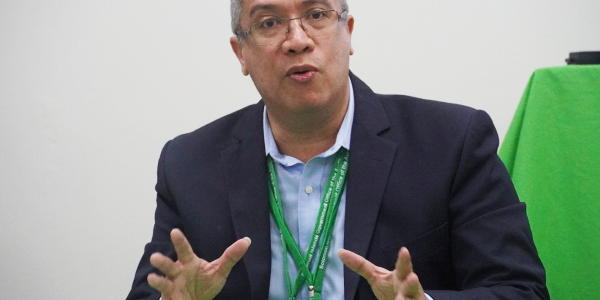Audit Report finds widespread abuse of COVID-19 disaster relief funds in three government ministries
THERE is widespread abuse of disaster relief funds in three government ministries, a new Audit Report has revealed.
The Audit Report, which focuses on procurement relating to COVID-19 disaster relief funds, highlights noncompliance, potential fraud and lack of accountability.
Immediately after the Prime Minister’s imposition of the State of Public Emergency (SOPE) last year after the entry of the global pandemic into the country, the government allocated SBD$90.5-million to three key ministries to implement a Preparedness and Response Plan.
The key ministries are Ministry of Health and Medical Services (MHMS), Ministry of Infrastructure and Development (MID) and National Disaster Management Office (NDMO) which comes under the Ministry of Environment, Climate Change, Disaster Management and Meteorology (MECDM).
The audit was conducted to assess whether these ministries managed COVID-19 procurement in accordance with relevant laws, policies and regulations of the government.
The report found that a huge amount of money was paid through imprest accounts that exceeded the legal minimum requirement of $10,000.
According to the report, the budget allocation for each of these three ministries were as follows: MHMS SBD$26.1-million, MID SBD$15-million and NDMO SBD$49.5-million.
A shocking finding was on the payments of imprest. In one ministry, the imprest holder was not a real person. The imprest was recorded as Emergency Response Fund Standing Imprest so the responsibility for retiring the imprest was not vested on a specific individual.
In this instance, there should rather be one signatory to the account in which these funds are placed and that a person should be recorded as the Imprest Holder or the person receiving the funds.
It was found that the largest payment via imprest was SBD$255,900 by the MHMS which does not meet the imprest definition of “small frequent payments.”
One such case is one that occurred on 25 May 2020 whereby Company A provided an invoice for $99,500 to the National Referral Hospital. The invoice was for 200 pillows with Mactinosh material at $400 each and 150 blankets at $130 each. Based on quotes from Health Service in Australia, these items should cost $AUD5000 to 6000 which is around SBD$30. Another supplier offered at SBD$35, whilst another offered at SBD$87 which is 50 percent more expensive.
Another shocking finding is none-compliance in the tendering and awarding of contracts for refurbishment to existing buildings to provide quarantine facilities and repatriation charters. MID was unable to provide records associated with procurement transaction.
In one case, a procurement of $2.5 million could not be located.
There were another ten procurements over SBD $50,000. NDMO also paid over SBD $13-million to the National Disaster Council Account which was not designated as an imprest.
One significant procurement appeared to be unrelated to the COVID-19 pandemic. The NDMO chose to supplement its vehicle fleet with the addition of two new Toyota vehicles at a cost of $677,500.
There was nothing in the supporting documentation to indicate a close relationship between the purchase of the vehicles and the COVID-19 response. In another procurement, NDMO hired a vehicle for pandemic-related activity for a limited period, which would seem to be a more appropriate response.
The Audit Report recommended the Ministry of Finance and Treasury to prepare a guideline and where necessary provide instructions to ensure ministries effectively manage procurement risks in a state of emergency.
BY CHARLES KADAMANA









